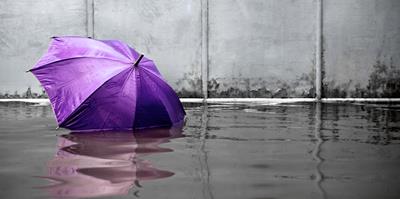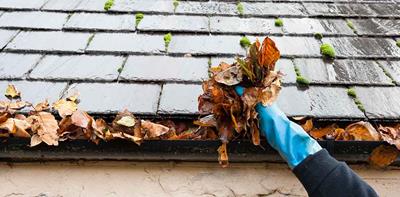
Keeping our homes in good condition is important, especially in the winter months. As the weather turns cold, freezing conditions mean increased risk of frozen or burst pipes, which could cause damage to your home and possessions.
But the good news is there are some simple steps you can take to help keep your plumbing in good working order and avoid an expensive bill or making an insurance claim.
EASY AS HACK
Reduce the risk of frozen or burst pipes by insulating your tank and pipes. You can either insulate it yourself (and save costs) or call a plumber.
AT A GLANCE
|
1. Frozen or burst pipes can cause a lot of damage to your home and contents 2. You can check for frozen pipes by looking out for bad smells and a lack of water coming from the pipe 3. We share what action you should take to reduce this risk |
What temperature do pipes freeze at?
Water can freeze in your pipes when the temperature falls to 0 degrees Celsius (32 degrees Fahrenheit) [1] or lower, causing a lot of damage to your home and contents, which can be hugely disruptive and costly to fix.
In fact, the average home insurance claim for burst pipes caused by freezing weather was £9,300 in 2021, according to the Association of British Insurers (ABI) [2].
How to check for frozen pipes
These are the signs you should look out for:
- Bad smells from the faucet or drain
If the pipe is frozen, the only way the odour can escape is back up in the direction of your home.
- Little to no water coming from the pipe
If you turn on the tap and only a slight trickle or no water comes out, the pipe leading to the faucet may be frozen.
- Frost on the exterior of the pipe
If you see visible frost on the pipe, this could mean that the pipe is on its way to being completely frozen.
How to reduce the risk of burst or frozen pipes
- If you have a smart thermostat with anti-frost setting, use it to keep your pipes from freezing.
- Make sure you know where your water shut-off valve (stopcock) is in case of emergency. Test it to make sure it can be turned off quickly and easily.
- If you’re leaving your home unoccupied during the winter, consider turning off the water at the stopcock to reduce the risk of pipes freezing.
- It can help to prevent frozen pipes if your pipes are lagged (wrapped in insulation) and your tank is insulated. You can do this yourself, if you feel confident, and it can also save you money on your energy bills.
- If you have any dripping taps, you might need to replace the washers. If dripping taps freeze they can block your pipe and cause damage.
- Check plumbing joints and pipes for any signs of freezing. If you spot any damage, it’s best to call a plumber if you can, to avoid it getting worse.
How to react if a pipe freezes
If you manage to identify a frozen pipe before it bursts, then turn off the water supply and the stopcock in the cold-water tank (if you have one, it is often found in the loft).
Open the tap that is closest to the frozen part of the pipe and thaw it out using a gentle heat source, such as a hot water bottle or hair dryer (from a safe distance) and work back to the hot water tank.
Do not use an open flame or boiling water to thaw a pipe out, nor a hammer to dislodge the ice, as these could cause the pipe to burst.
What to do if you do have a burst pipe
If a pipe bursts, it can cause major damage to your home and contents. So, it’s important to act as soon as possible: the sooner you can stop the water escaping, the more you can reduce the risk of further damage.
If you have a burst pipe, follow these steps:
- Turn off the water supply at the main stopcock.
- Turn off the stopcock in your cold-water tank.
- If it’s on, switch off the central heating system and any other water heating installations to avoid further damage.
- If the ceiling is bulging, place a bucket underneath and create a small hole.
- If you can, find the source of the burst.
If it is the cold-water tank, empty it by running all the cold taps and flushing all toilets a number of times after you have turned off your water supply.
Drain the hot-water system. First turn off the boiler and immersion heater if you have one, then turn off the cold feed pipe to the cylinder and run all the hot water taps to empty the pipes of water.
- Take a photograph of all damaged items and make a note of the damage, but keep any damaged items, as you may need these if you make a claim.
- Call your insurance company as soon as you can, and they’ll advise you on what to do next.
Does my home insurance cover burst pipes?
Most home insurance policies include cover for burst pipes and water leaks as standard.
All policies should protect you from ‘escape of water’[3] – that’s any damage caused by a flood or leak in your home. But they may not include your expenses when it comes to hiring a plumber to find the leak and fix it. So, always check with your insurance company to find out what is and isn’t covered.
What to expect when you make a claim
If the damage is substantial, your insurer may assign a loss adjuster [4] – a specialist who assesses large insurance claims – to manage your claim and advise you on the best course of action [5].
The loss adjuster will instruct a professional restoration company. Once your house is dry, a Certificate of Dryness [6] is usually issued. Personal items may either be replaced or restored depending on the level of damage and subject to the terms and conditions of your home insurance policy.
But hopefully it won’t come to this. By taking a few simple measures now, you can help reduce the chances of disruption and expense problems caused by frozen pipes.
As we all try to balance keeping warm with rising energy costs, there are some other steps you can take to help prevent freezing pipes. You could try insulating water pipes and water tanks if you have them in the loft, or using draught excluders around doors can help keep your home warm and reduce energy bills [7].

Shopping for home insurance...
... that makes protecting your home Easy As? Ageas Home Insurance is Defaqto 5 Star rated.
[1] https://www.edfenergy.com/energywise/prevent-pipes-freezing
[2] https://www.abi.org.uk/news/news-articles/2022/11/winter-is-coming-so-dont-be-frozen-out-how-to-protect-against-frozen-and-burst-pipes-this-winter/
[3] https://www.moneysupermarket.com/home-insurance/burst-pipes-and-water-leaks/
[4] https://www.comparethemarket.com/home-insurance/content/what-is-a-loss-adjuster/
[5] https://www.abi.org.uk/products-and-issues/choosing-the-right-insurance/home-insurance/burst-pipes-and-water-leaks/
[6] https://drynesscertificate.uk/certificate-of-dryness/
[7] https://energysavingtrust.org.uk/
article updated 19th October 2023


